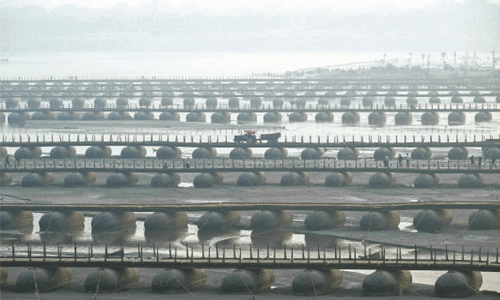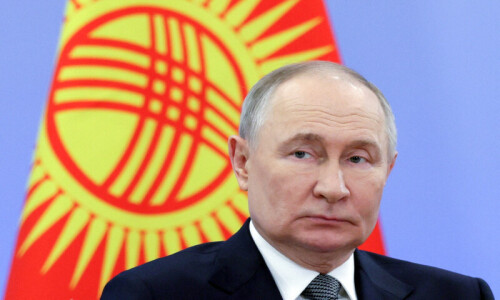THE curious case of a missing ex-president is set to become curiouser still. Eighteen months ago, in June 2015, former president and current PPP supremo, Asif Ali Zardari, left Pakistan, seemingly in a hurry after stirring up controversy with his remarks against a military leadership led by a wildly popular army chief.
No credible explanation was offered then by the PPP for Mr Zardari’s exit from Pakistan and none has been offered since. But from self-imposed exile — occasionally in New York, sometimes in London and mostly in Dubai — Mr Zardari has continued to control his party.
The current chief minister of Sindh, Murad Ali Shah, was anointed in Dubai after the previous chief minister, the long-serving Qaim Ali Shah, was informed in Dubai that his services were no more required.
And while Bilawal Bhutto-Zardari has made a show of reorganising the party in Punjab on his terms, there is little doubt that the elder Zardari is the real power in the party nationally.
With so many unanswered questions about his exit and self-imposed exile, it may be wishful thinking that Mr Zardari will answer questions about his plans for the PPP generally and the Sindh government in particular upon his return on Dec 23rd — a date confirmed by the PPP, but that may yet change, if history is any guide.
First, what is Mr Zardari’s plan for Sindh? The devastation wrought by more than eight consecutive years of PPP rule in the province is only partly obscured by the fact that historically Sindh has been governed poorly and that perhaps over the past decade only Balochistan has been governed worse.
The governance deficit in rural and urban Sindh is acute and unending.
More troubling, the governance deficit is wilful. The removal of the inspector general of Sindh yesterday by Chief Minister Shah is a grim case in point — it both makes a mockery of the chief minister’s promise of a fresh start and hints at the dark impulses and compromises that shape key decisions in Sindh.
Second, what does Mr Zardari intend to do about the PPP’s drift towards political irrelevance in the country?
The PPP’s continuing electoral dominance in Sindh seems assured, but everywhere else where there are credible political alternatives, it has fallen behind its mainstream rivals. Mr Bhutto-Zardari has tried to project a party of the next generation, but his leadership thus far has been characterised by whimsicality and uncertainty.
Few outside the party can take him seriously when few inside the party believe he has the power to take independent decisions. External factors may have played a role, but it remains true that Mr Zardari has presided over a great decline in the PPP’s electoral fortunes, to the extent of the party being reduced to a regional rump in Sindh.
Merely returning to Pakistan will not fix much for Mr Zardari or the PPP.
Published in Dawn December 20th, 2016













































